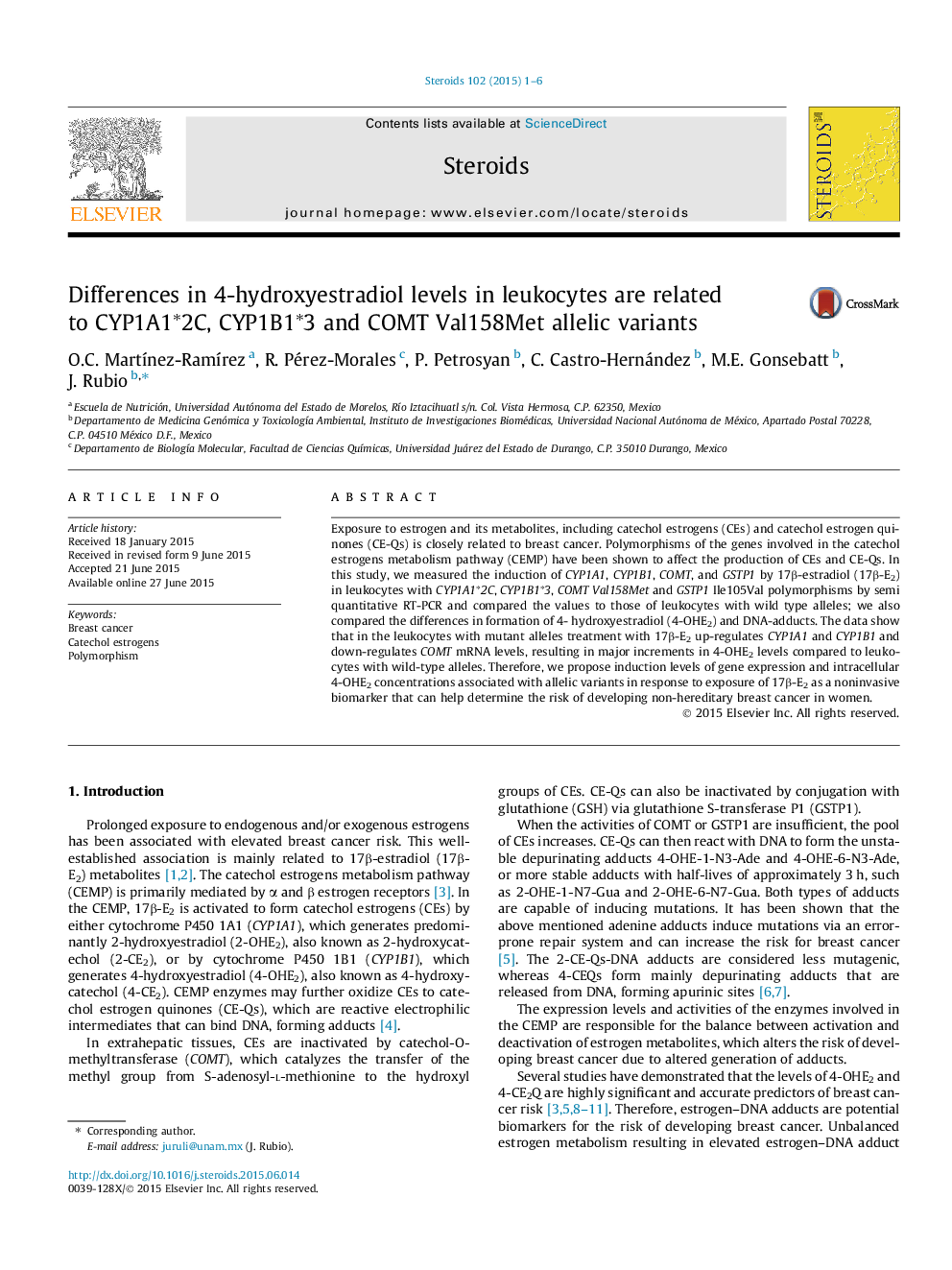| کد مقاله | کد نشریه | سال انتشار | مقاله انگلیسی | نسخه تمام متن |
|---|---|---|---|---|
| 2027539 | 1542706 | 2015 | 6 صفحه PDF | دانلود رایگان |

• We propose a non-invasive biomarker to assess individual risk for breast cancer.
• We found differences in the 4-OHE2 between leukocytes with different alleles.
• The “leukocytes with mutant alleles” displayed marginally lower levels of adducts.
Exposure to estrogen and its metabolites, including catechol estrogens (CEs) and catechol estrogen quinones (CE-Qs) is closely related to breast cancer. Polymorphisms of the genes involved in the catechol estrogens metabolism pathway (CEMP) have been shown to affect the production of CEs and CE-Qs. In this study, we measured the induction of CYP1A1, CYP1B1, COMT, and GSTP1 by 17β-estradiol (17β-E2) in leukocytes with CYP1A1∗2C, CYP1B1∗3, COMT Val158Met and GSTP1 Ile105Val polymorphisms by semi quantitative RT-PCR and compared the values to those of leukocytes with wild type alleles; we also compared the differences in formation of 4- hydroxyestradiol (4-OHE2) and DNA-adducts. The data show that in the leukocytes with mutant alleles treatment with 17β-E2 up-regulates CYP1A1 and CYP1B1 and down-regulates COMT mRNA levels, resulting in major increments in 4-OHE2 levels compared to leukocytes with wild-type alleles. Therefore, we propose induction levels of gene expression and intracellular 4-OHE2 concentrations associated with allelic variants in response to exposure of 17β-E2 as a noninvasive biomarker that can help determine the risk of developing non-hereditary breast cancer in women.
Journal: Steroids - Volume 102, October 2015, Pages 1–6